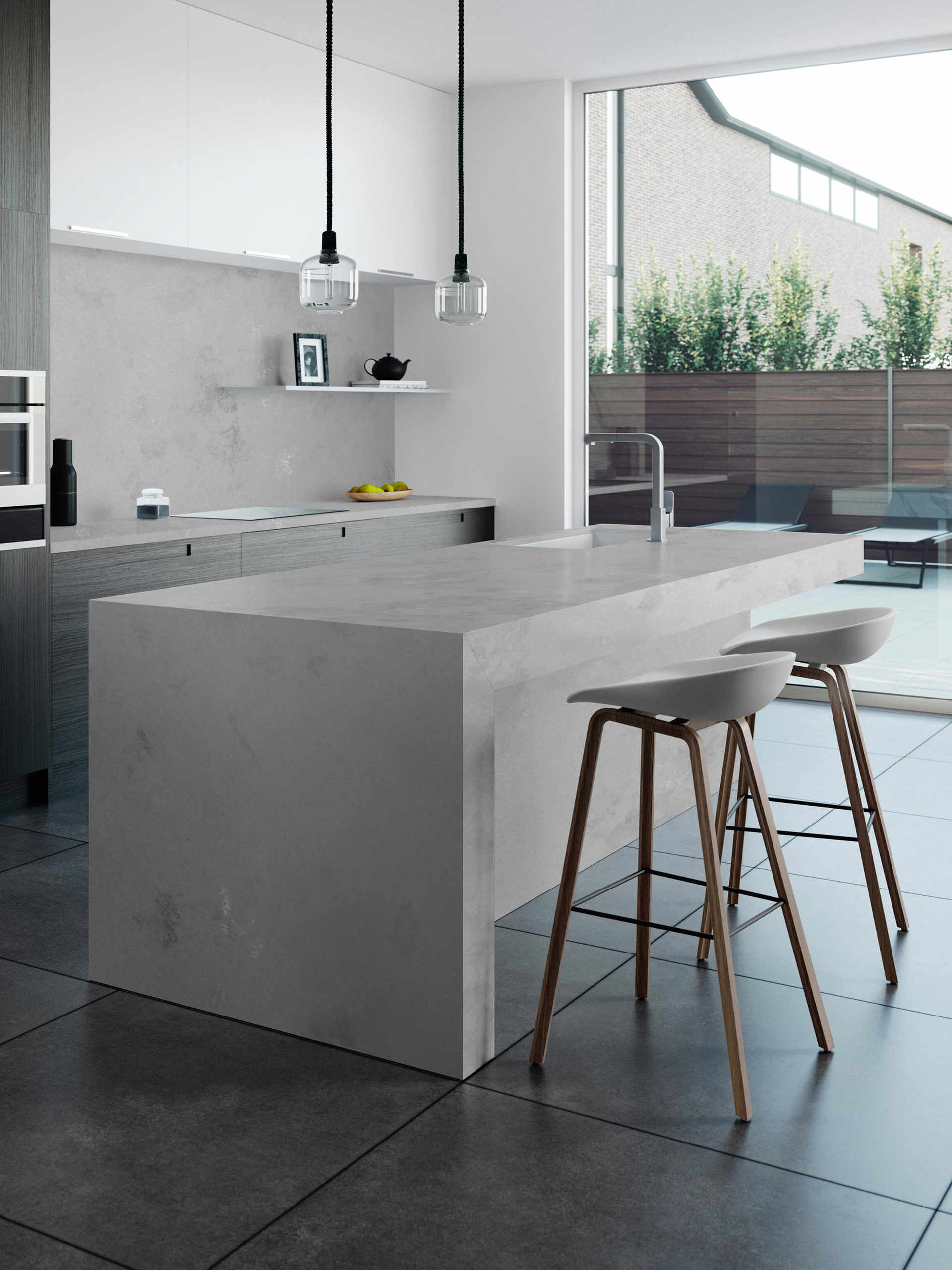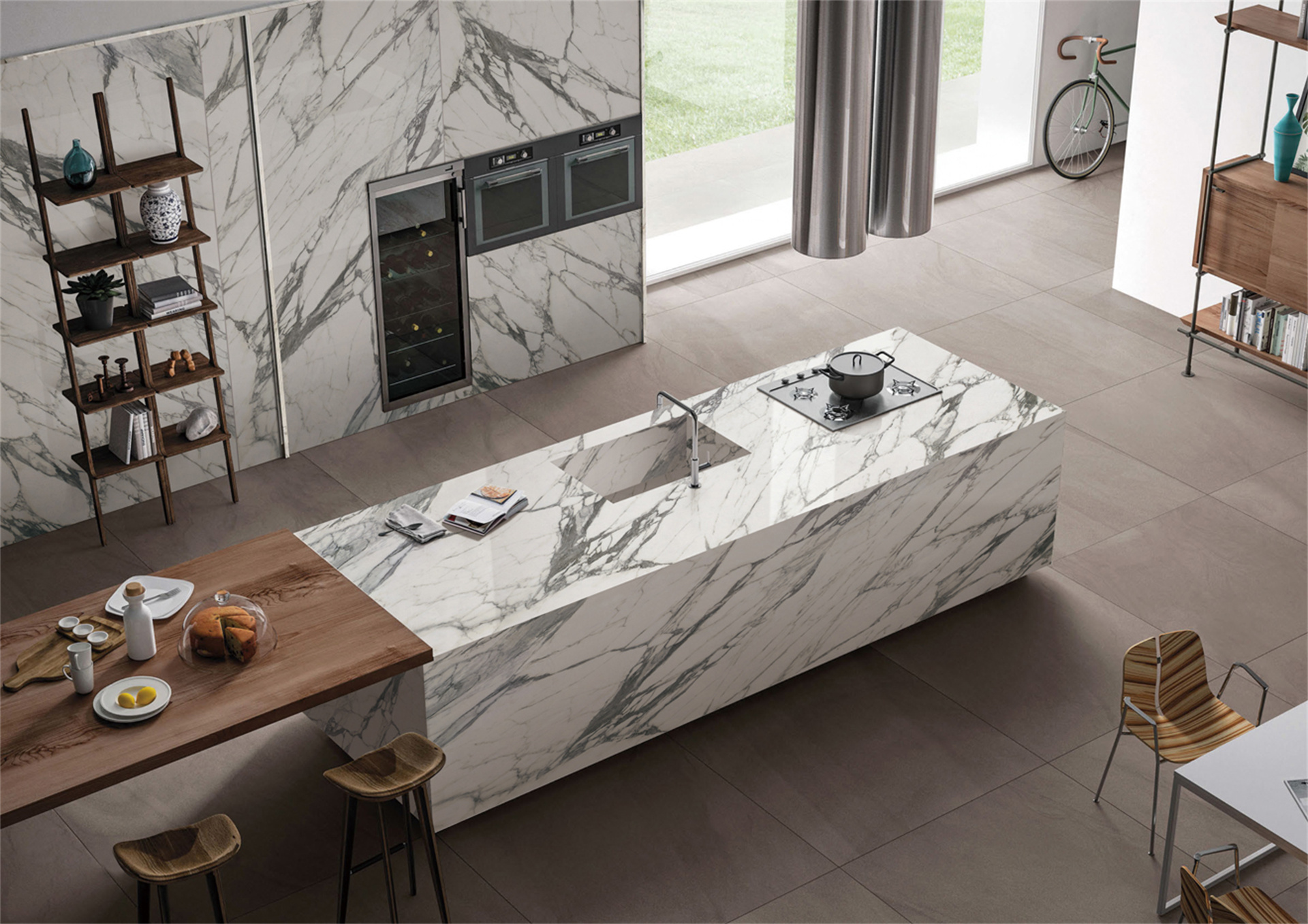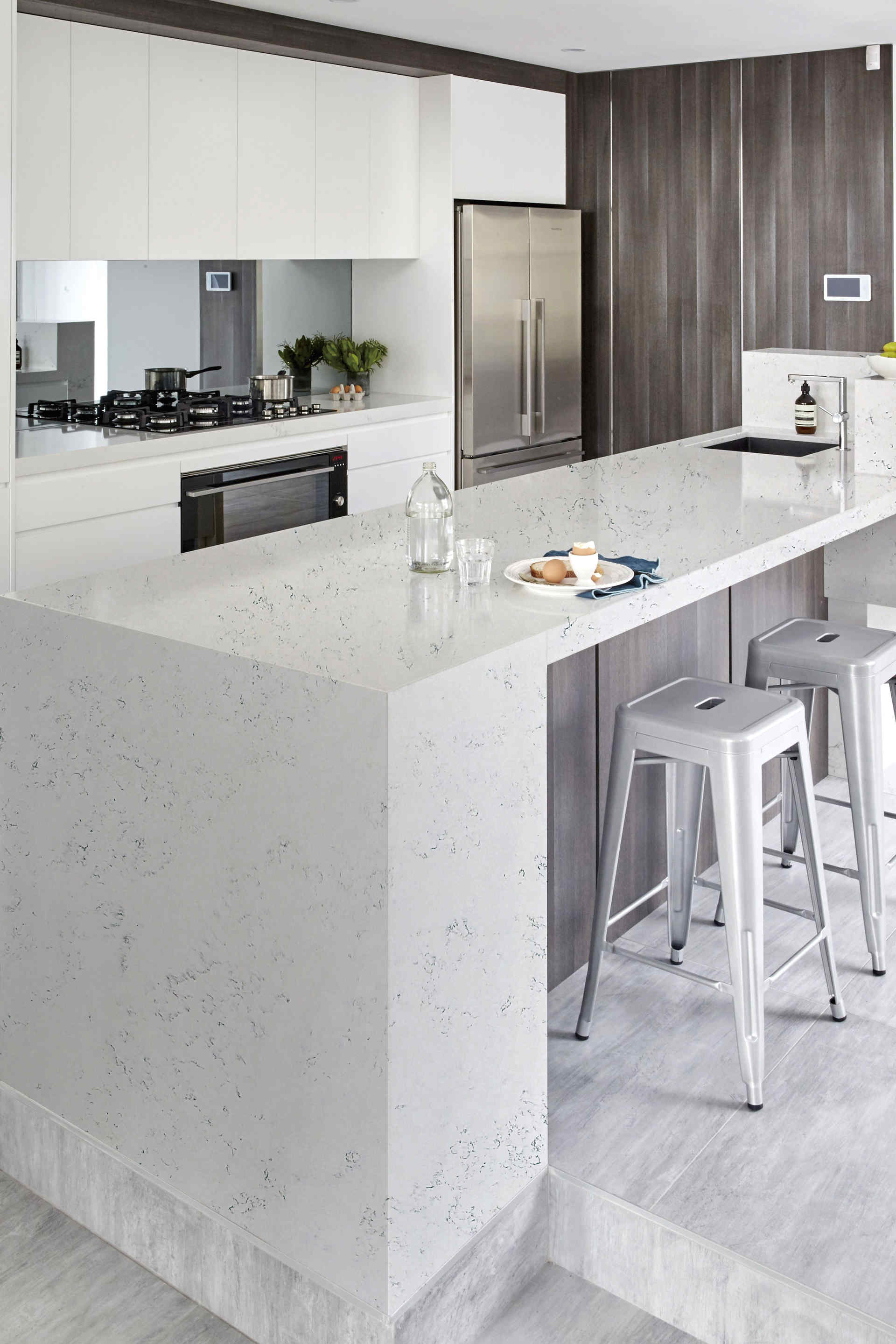What is Quartz?
Quartz countertops are engineered stone surfaces made from a combination of natural quartz (around 90%) and resins, polymers, and pigments (10%). The quartz is ground into small bits, combined with the other components, and then molded into slabs using high heat and pressure. This manufacturing process results in a non-porous, highly durable surface that resembles the look of natural stone but with more consistent patterning and coloring.Pros of Quartz Countertops
Durability: Quartz is extremely hard and durable, resistant to scratches, chips, and cracks. It scores a 7 out of 10 on the Mohs hardness scale.Low Maintenance: Since quartz is non-porous, it doesn't require sealing and is highly resistant to stains. It's easy to clean with just soap and water.
Versatile Aesthetics: Quartz comes in a wide range of colors and patterns, including designs that mimic the look of natural stones like marble and granite.
Hygienic: Quartz's non-porous structure prevents bacteria, mold, and mildew from entering the surface, making it an ideal choice for kitchens.
What is Sintered Stone?
Sintered stone is a relatively new countertop material made from 100% natural minerals, including quartz, porcelain, and glass. These minerals are crushed into a powder and then subjected to tremendous heat and pressure in a process known as sintering. This creates an ultra-compact, non-porous slab with superior durability and performance compared to many other countertop materials.Pros of Sintered Stone Countertops
Highly Durable: Sintered stone is extremely durable and resistant to scratches, chips, cracks, and abrasions. It ranks between 7-8 on the Mohs scale, making it harder than quartz.Heat Resistant: Unlike quartz, sintered stone can tolerate temperatures of up to 1200°C (2192°F) without burning, scorching, or discoloration.
UV Resistant: Sintered stone does not fade or yellow when exposed to direct sunlight, making it suitable for both indoor and outdoor applications.
Stain and Water Resistant: The non-porous nature of sintered stone makes it highly resistant to stains, water absorption, mold, and mildew.
Low Maintenance: Sintered stone requires minimal upkeep and can be easily cleaned with soap and water. It never needs sealing.
Environmentally Friendly: Many sintered stone products are made from recycled materials and are fully recyclable at the end of their life.
Comparing Quartz and Sintered Stone
Durability and Performance
Both quartz and sintered stone are extremely durable materials, with greater resistance to scratches, chips, and cracks than many natural stones. However, sintered stone has a slight edge in terms of hardness, scoring between 7-8 on the Mohs scale compared to quartz's rating of 7.One key difference is heat resistance. Sintered stone can withstand extremely high temperatures without any damage, while quartz is susceptible to melting, discoloring, or cracking when exposed to sudden or prolonged heat above 150°C (300°F).
Another important distinction is UV resistance. Sintered stone maintains its color and appearance when exposed to direct sunlight, making it suitable for outdoor applications. Quartz, on the other hand, tends to fade or yellow with time when used outdoors.
Aesthetics and Design Flexibility
Quartz offers a wider range of colors, patterns, and finishes compared to sintered stone, including designs that closely resemble natural stones like marble, granite, and concrete. This versatility allows for greater design flexibility to suit various styles and preferences.Sintered stone, while offering fewer color options, can mimic the look of natural materials like stone, wood, and cement. It's available in large format slabs, which enable smooth installations with few connections. Some sintered stone products include book-matched or vein-matched motifs for a more realistic, continuous appearance.
Maintenance and Care
Both quartz and sintered stone are non-porous, making them highly resistant to stains and easy to maintain. They can be cleaned with just soap and water, and neither material requires sealing.However, quartz is more susceptible to damage from heat and prolonged sun exposure, requiring extra caution when using hot items in the kitchen or installing it in outdoor spaces. Sintered stone, being highly heat and UV-resistant, offers more flexibility in terms of placement and usage.
Conclusion
Ultimately, the choice between quartz and sintered stone depends on your specific needs, preferences, and budget. Consider factors such as your kitchen's style, the level of durability and performance you require, and your willingness to invest in a premium countertop material.Whether you are looking for quartz stones or sintered stones, OVERLAND can help you. If you are interested in it, please browse our website for more product details now!



